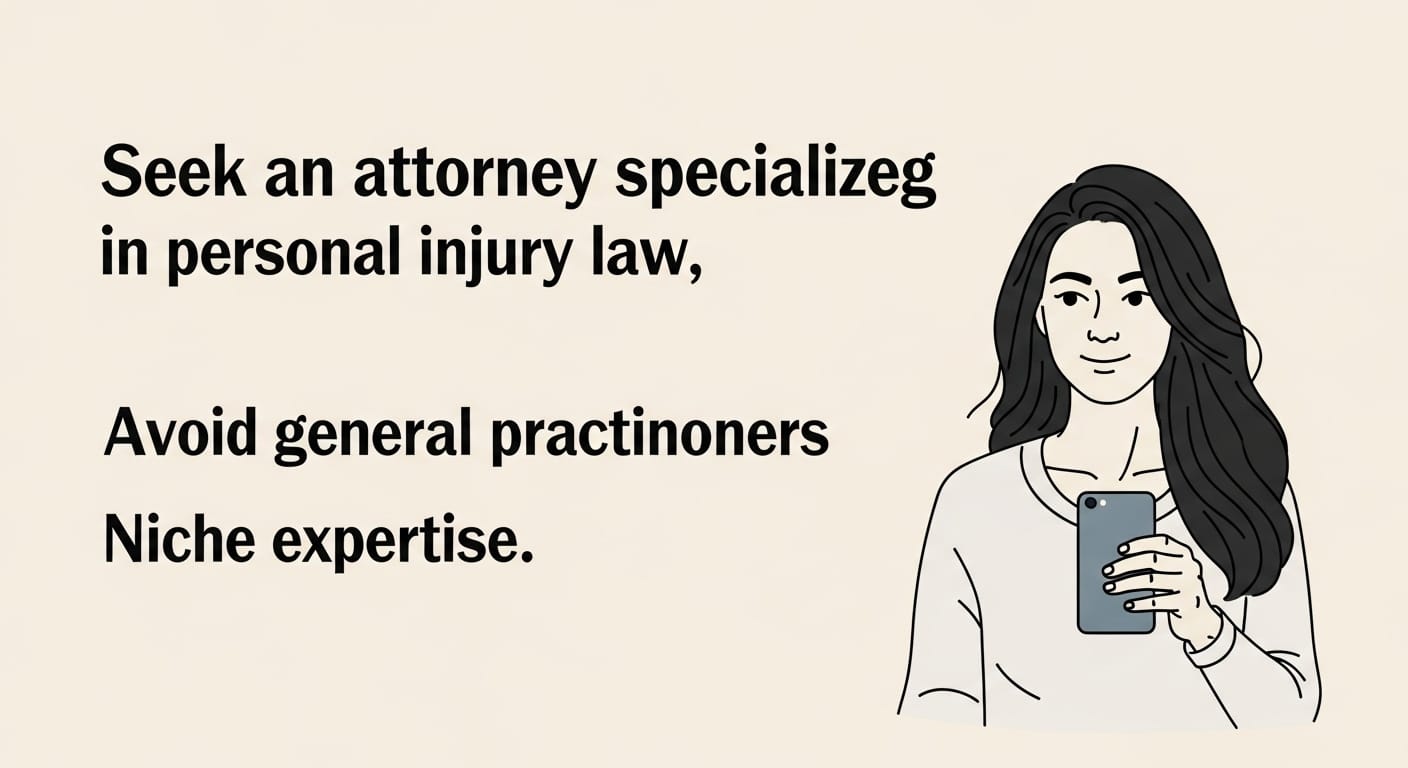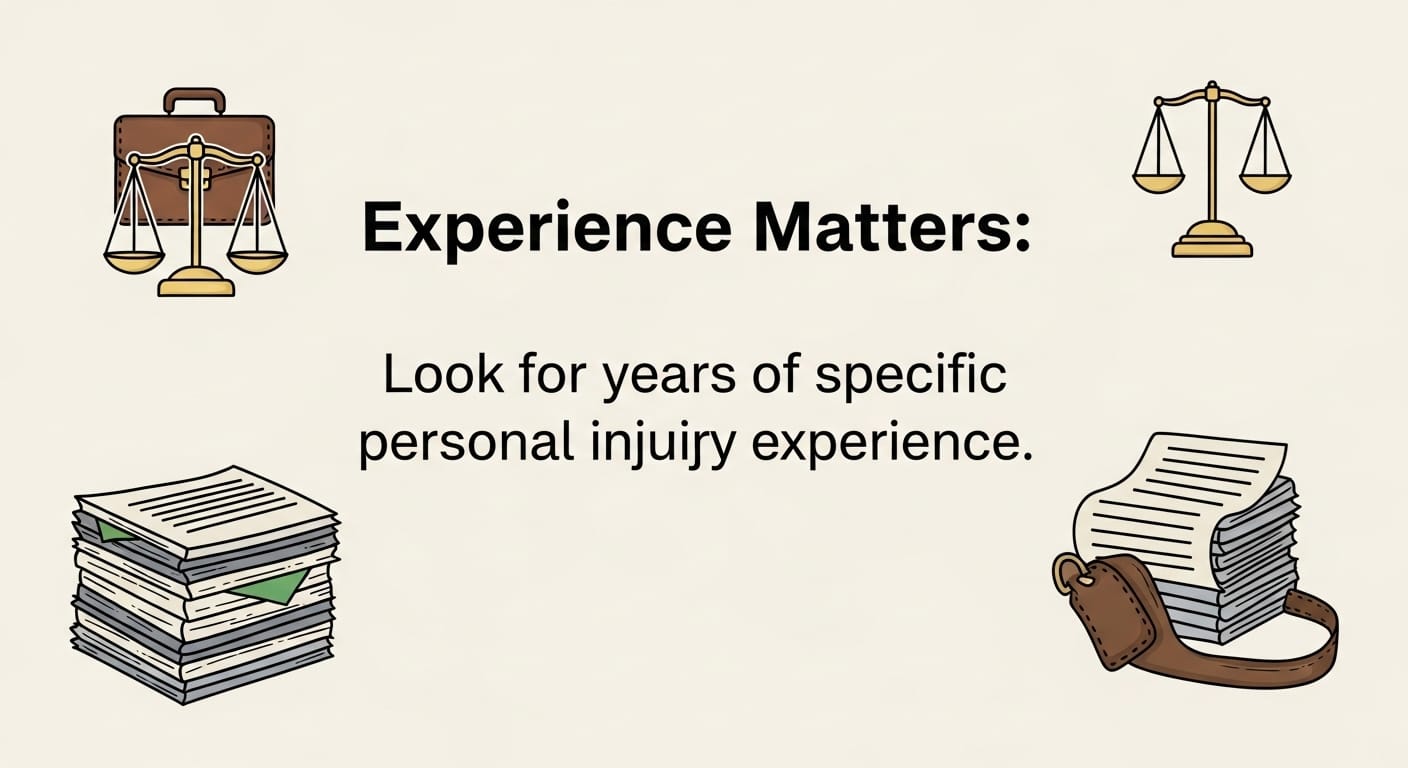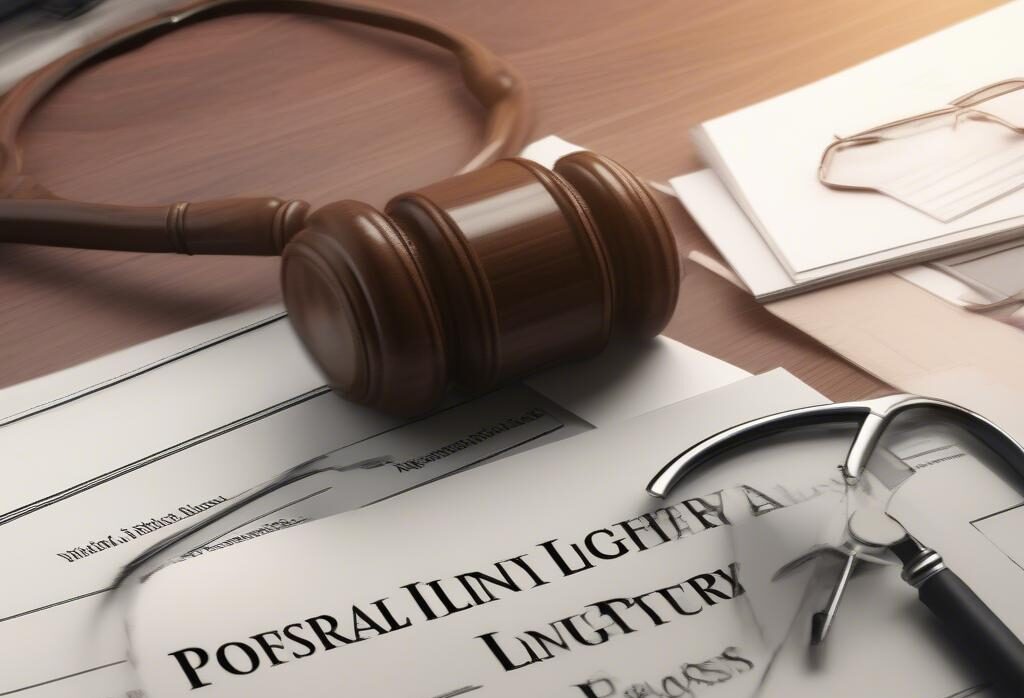So, you’ve had an accident. Maybe you slipped on a mysterious puddle in the grocery store’s aisle (why does it always happen in front of the canned tuna?), or a driver who apparently mistook their car for a bumper car decided to introduce themselves via your fender.
Whatever the situation, you’re hurt, you’re confused, and you need help. Enter: the personal injury attorney. Picking the right one is no small feat, though, so let’s break it down with some practical tips—and just a sprinkle of humor—because nothing says “legal drama” like a little levity.

Top Takeaways and Key Concepts
Prioritize Experience: Hire attorneys specializing in personal injury cases with proven trial and settlement history.
Ensure Clear Communication: Choose a lawyer who explains legal terms clearly and responds promptly to questions.
Check Reputation: Research online reviews, ask for references, and verify disciplinary records with the state bar.
Understand Fees: Confirm contingency rates, additional costs, and payment structures before hiring an attorney.
Trust Your Instincts: Ensure you feel comfortable, respected, and confident in your attorney’s commitment to your case.
Summary of This Article
The article guides readers on selecting a personal injury attorney, emphasizing experience, communication, reputation, fees, and personal connection. It stresses hiring specialists with relevant case history, clear and responsive communication, and positive professional standing. Understanding fee structures and contingency agreements prevents unexpected costs. Building trust and feeling comfortable with the attorney ensures effective collaboration. Overall, choosing the right lawyer combines practical research with personal judgment to maximize case success and minimize stress.
1. Experience: Have They Seen It All or Just a Little?

When it comes to personal injury law, experience matters. You wouldn’t hire a dentist who’s only read about root canals on WebMD, right? So, why gamble with someone who’s still figuring out the difference between torts and tarts?
Look for attorneys who specialize in personal injury cases—specifically ones similar to yours. Did they handle car accidents, workplace injuries, or those wild “falling vending machine” lawsuits you read about?
The more specific, the better. It’s like dating; compatibility counts. Ask about their success rate and typical settlement amounts. If their response includes the phrase, “I think I’ve won one of those,” run.
Pro tip: Ask how long they’ve been in practice. More importantly, ask if they’ve ever gone to trial. Many cases settle out of court, but if your lawyer breaks into a cold sweat at the mention of a courtroom, that’s not a great sign.
2. Communication: Can They Speak Human?
Let’s face it: legal jargon is a language all its own. Words like “res ipsa loquitur” or “subrogation” can make your brain feel like it’s stuck buffering. A good personal injury attorney knows how to translate all that lawyer-speak into plain English—or at least something close to it.
When you first meet, pay attention to how they explain your case. Do they seem interested? Are they answering your questions, or are they more focused on showing you their 7,000 plaques? Watch out for lawyers who seem to be auditioning for an infomercial; you need someone who listens to *you*, not someone trying to sell you a set of steak knives.
By the way, communication also means being responsive. If it takes them longer to return your call than it took for the dinosaurs to go extinct, that’s a red flag.
3. Reputation: What’s the Word on the Street?
In the age of Google, researching someone’s reputation has never been easier. Check out online reviews, but remember to take them with a grain of salt. Sure, one disgruntled client might claim the attorney stole their sandwich, but look for trends.
Are there consistent complaints about poor communication or low settlements? Conversely, are there glowing reviews about professionalism and results?
Ask around, too. Friends, family, even that chatty neighbor with binoculars probably have some insight. And if an attorney has been disciplined by the state bar, well, that’s like finding out your chef failed their health inspection. You can look up their disciplinary records through your state’s bar association website.
4. Fees: What’s the Damage (to Your Wallet)?

Most personal injury attorneys work on a contingency fee basis, which is legalese for, “We only get paid if you do.” Typically, they’ll take a percentage of your settlement—usually around 33%. While this is standard, it’s always good to confirm up front. There’s nothing worse than winning your case and realizing your attorney expects you to pay in gold doubloons.
Also, be sure to ask about additional costs. Things like filing fees, expert witnesses, and investigative expenses can add up. Some attorneys will cover these fees and deduct them from your settlement later; others might bill you as the case progresses. Knowing this ahead of time can prevent any awkward “Wait, you’re charging me for that?” conversations down the line.
5. Personal Connection: Do You Actually Like Them?
Okay, this might sound a little cheesy, but it’s important. You’re probably going to spend a lot of time with this person, so make sure you feel comfortable with them. If they remind you of that one relative who always “forgets” your birthday, maybe keep looking.
Trust your gut during the initial consultation. Did they seem genuinely invested in your case? Were they kind? Or did they spend most of the meeting scrolling through their phone? A good attorney doesn’t just care about your case—they care about *you*.
6. Trial Experience: Ready to Rumble?
Not every case goes to trial, but you want an attorney who isn’t afraid to duke it out in court if necessary. Insurance companies know which lawyers are willing to take a case to trial—and trust me, they take advantage of the ones who aren’t.
Ask your potential attorney how many cases they’ve taken to trial and how those turned out. You don’t want someone whose idea of courtroom prep involves binge-watching *Law & Order* the night before.
7. Specialization: Jack of All Trades or Master of One?
While some lawyers dabble in everything from criminal defense to estate planning, personal injury law requires its own skill set. Find someone who focuses on personal injury cases. They’ll know the specific statutes and strategies to maximize your compensation.
By the way, avoid attorneys who promise you a specific settlement amount right away. Sure, it’s tempting to hear someone say you’ll definitely get six figures, but until they’ve dug into your case, it’s all guesswork. A realistic attorney won’t make guarantees—they’ll make educated estimates.
8. Gut Check: Do They Feel Right?
Finally, trust yourself. If something feels off, it probably is. Picking the right attorney isn’t just about checking boxes—it’s about feeling confident in your choice. Think of it this way: if you wouldn’t want them to represent you in a game of Monopoly, you probably don’t want them handling your injury claim either.
Suggested Resources:
– How to Find the Best Personal Injury Lawyer
https://www.lawyersearch.com/best-personal-injury-lawyer
– Personal Injury Law Basics
https://www.nolo.com/personal-injury-law
– What You Need to Know Before Hiring an Attorney
https://www.attorneyguide.com/hiring-an-attorney
Frequently Asked Questions
Why is experience important when choosing a personal injury attorney?
Experience ensures your attorney understands complex legal processes, negotiation tactics, and case strategies to secure the best possible outcome.
How can I tell if an attorney communicates effectively?
A good attorney explains legal terms clearly, answers your questions promptly, and keeps you informed about your case without using confusing jargon.
What’s the best way to check an attorney’s reputation?
Research online reviews, verify their disciplinary record with the state bar, and ask for references from previous clients to gauge professionalism and results.
How do contingency fees work in personal injury cases?
Most personal injury lawyers charge a contingency fee, meaning they only get paid if you win your case, usually taking a set percentage of your settlement.
Should trial experience matter when hiring a personal injury lawyer?
Yes. Attorneys with trial experience are more confident in court and can negotiate better settlements because insurers know they’re willing to litigate.
Why is specialization in personal injury law important?
Specialized attorneys are familiar with relevant laws, medical issues, and claim processes, helping you maximize compensation and avoid common pitfalls.
What personal factors should I consider before hiring an attorney?
Trust your instincts. Choose a lawyer who makes you feel comfortable, listens attentively, and shows genuine interest in your case and well-being.

Kevin Collier is a legal expert passionate about simplifying complex legal concepts for everyday individuals. With a focus on providing clear, practical information, he covers a wide range of topics, including rights, responsibilities, and legal procedures. Kevin aims to empower readers with the knowledge they need to navigate the legal landscape confidently, ensuring they can make informed decisions regarding their legal matters. Through insightful articles and easy-to-understand resources, he helps demystify the law, making it accessible to all.










